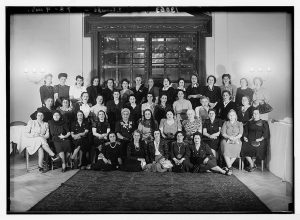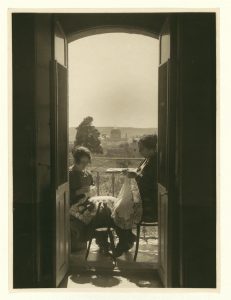Leadership remains the main talent in demand in the midst of all the technological advances in organizations and management styles. A leader’s mission is full of challenges and responsibilities, but it can also be extremely rewarding on a personal level. A good leader is not only an efficient manager but also a humane team player, a communicator, and an influencer who genuinely believes in people and seeks to create lasting, positive relationships within the work environment. This delicate balance between firmness and flexibility, creativity and efficiency can be very tricky to maneuver, but it is a key quality in the profile of a good leader.
Some studies suggest that there are indeed differences in the way men and women perceive leadership, and these differences affect their leadership styles. Some authors state that women tend to place more emphasis on nurturing and communication and are more “people-oriented,” whereas men tend to focus on the organization’s goals and are more “task-oriented.”*1 Other studies suggest that leadership styles are not correlated to gender at all but are only a matter of personal style, regardless of gender.*2

Source: Matson Photo Service, photographer – Congress Library.
The observation that leadership positions are dominated by men cannot be made only in Palestine or the region, it is applicable worldwide. Even today, the stereotyped role of women is still very much alive in people’s minds, and we subconsciously perform daily tasks based on this stereotype. Because it is rare to find women in senior leadership positions anywhere in the world, there’s a lack of data that compares their behavior to that of men in such positions. Although there has been a substantial increase in the number of women in leadership positions during the last decades, it can still be considered a work in progress.
Palestinian women are society’s heritage keepers. Like our grandmothers, they are the storytellers that form the memory of the young, so that when the old pass away, the young will never forget. And we will never forget!
Major changes and progress have been made throughout the Arab world in terms of women’s rights, specifically in communities that have become accepting of women in leadership positions, but Palestine presents a unique case. Despite the fact that Palestine features a tribal community structure and a conservative and patriarchal society, women in Palestine have historically always been responsible for a huge portion of the work. Women have been and still are expected to take full responsibility for raising children and managing home matters as well as doing numerous other tasks. Women in Palestine have traditionally been the economic managers of the household.
Women’s associations in Palestine were established before Al-Nakba in 1948; their main task was to support families within the community by performing a charitable role. After Al-Nakba and the displacement of Palestinians and the fragmentation of families, the role of women took a dramatic turn. The priorities shifted towards protecting families, supporting families who lost their main breadwinner, providing services within and outside the refugee camps, and supporting needy children to continue their education, in addition to gaining an education for themselves as a weapon and a tool for survival. This is clearly reflected in the 2017 census data that show that the illiteracy rate in Palestine is among the lowest in the region.

Palestinian women were involved early on in political life, from joining hand in hand with men in resisting the oppression of the occupation – where hundreds had been detained, including children – to taking the lead in senior positions as judges, ministers, and businesswomen.
Society’s perception of the role of the woman has dramatically improved and is reflected in women’s growing participation in the labor force, where it increased from 13 percent in the year 2000 to about 19 percent in 2017. Women in Palestine are highly educated as well, even when compared to men; around 60 percent of women were found to be enrolled in higher education in 2017. Nevertheless, these indicators are only part of the full equation of women’s empowerment.
Despite all odds, the Palestinian government is leading the way towards practical empowerment of women, enabling them to exercise their legitimate rights. Most recently, laws have been amended to allow women to be issued passports, open bank accounts, and change schools for their children − rights previously held only by Palestinian men. The road ahead is lengthy and full of challenges, but our determination assures us that there’s a light at the end of the tunnel.
*1 See Gary N. Powell, D. Anthony Butterfield, 2003, “Gender, gender identity, and aspirations to top management,” Women in Management Review, Vol. 18 Issue: 1/2, pp.88–96.
*2 Sabina Nielsen and M. Huse, 2010, “The Contribution of Women on Boards of Directors: Going Beyond the Surface,” Corporate Governance: An International Review, 18(2), 136–148.


